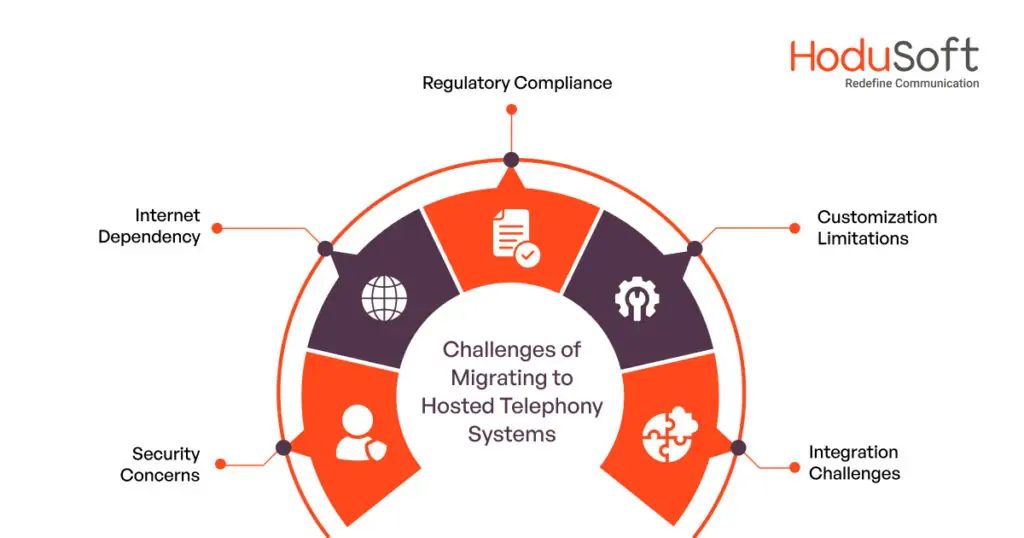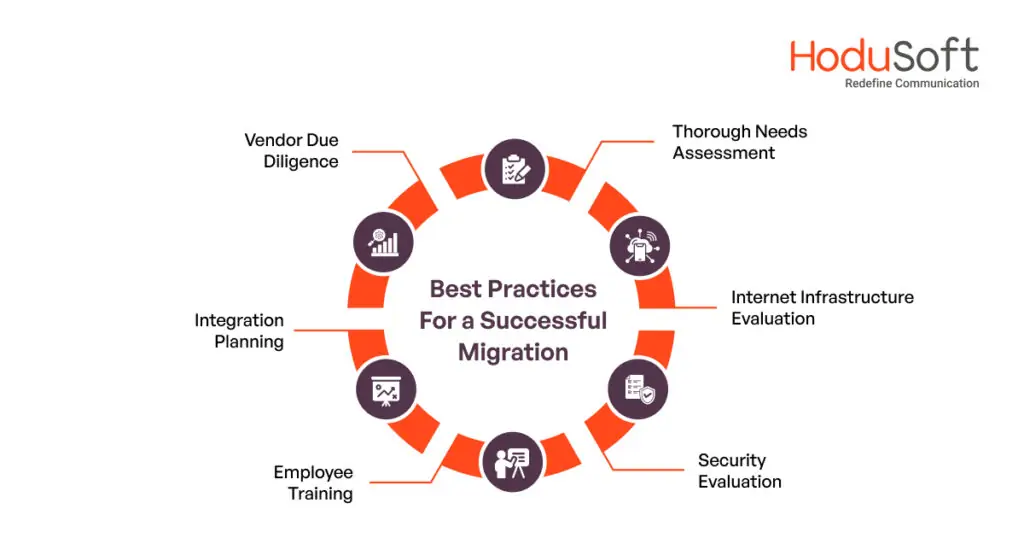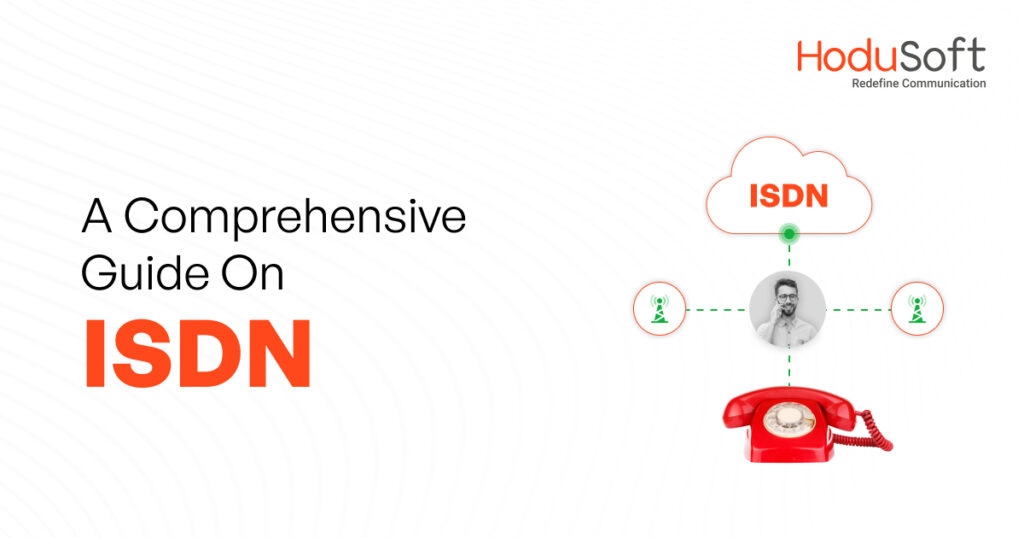Unlocking the Potential of Hosted Telephony System
Google’s co-founder Larry Page once said “Especially in technology, we need revolutionary change, not incremental change.” If we look around at the present world, the technological marvels that we enjoy today have undergone a radical transformation.
Let’s take the example of one of the most widely used tech tools in our day-to-day lives—the telephony system. We can’t imagine what our lives would be like without a telephone. The tool has been around for more than one and a half centuries now. But the way it has evolved is remarkable.
The innovation of a hosted telephony system marked a huge breakthrough in the telecom sector and soon the public switched telephone network (PSTN) made way for the hosted IP PBX system (or cloud-based Internet Protocol Private Branch Exchange system).
Businesses that have started adopting hosted IP PBX telephony systems are way ahead of the curve compared to their competitors. As per a report, In 2020, hosted PBX reached a market size of over USD 5 billion and is expected to grow at a CAGR of more than 12% over 2021-2027.
In this blog post, we have discussed the potential hosted telephony systems for contemporary businesses as well as the benefits and challenges of migrating to a hosted IP PBX system. Read on to know more.
Benefits of Migrating to A Hosted Telephony System
Migrating to a hosted telephony system can have a lot of benefits for organizations. Here are some of the major benefits contemporary businesses get after migrating to a cloud-based PBX system:
1. Cost-Effective
Cloud-based PBX is highly cost-effective. In fact, the biggest advantage of hosted telephony systems is cost savings. Traditional telephony systems require upfront investment, hardware, and installation costs, a lock-in period, and regular maintenance costs. On the other hand, hosted solutions operate on a subscription model, which enables users to operate on a ‘pay as you go (or need) basis.’
2. Scalability
Did you know that you can add unlimited extensions and users using some providers’ cloud-based PBX software? Yes, some sophisticated cloud-based PBX systems enable organizations to add unlimited extensions and direct numbers with just a few clicks.
That’s one of the biggest benefits of cloud-based phone systems. It can help you to scale up (or down) your operation without major overhauls or hassle as per your business needs.
3. Portability and Mobility
Suppose you are running a small-sized (or mid-sized) global business. That means even though your team is small, they are working across locations and time zones. In this case, which telephony system can help you efficiently coordinate with various team members?
Cloud-based PBX, of course. No phone system is as portable and mobile as hosted telephony systems. Hosted telephony systems enable employees to make and receive calls from any location with an Internet connection.
4. Advanced Features and Functionality
Cloud-based PBX systems often come equipped with a rich set of features that enhance communication efficiency. Some of the features include auto-attendants, video conferencing, call recording, and voicemail-to-email.
You can also add sophisticated features and user licenses as per your requirements. By doing so, you won’t have to invest in unnecessary features or hardware that you don’t need. This will help in reducing the overall cost of ownership.
5. No IT Team Is Required
Just imagine how expensive it would be if you hired an IT team just to take care of your business telephony system. It is not just a matter of expense but also will require your focus and attention, which you could have channeled to grow your operations. But in the case of a hosted phone system, you won’t need that.
When you invest in a cloud-based PBX telephony system, you don’t need to invest in an on-site infrastructure, and thereby, you don’t need an entire IT team to maintain your phone lines. From hosting to maintenance to upgrades, your software provider will take care of everything.
6. Reliability and Redundancy
Compared to all other telephony systems, a hosted IP PBX system is extremely reliable. Hosted telephony systems leverage the redundancy of multiple servers and data centers, ensuring high availability and reliability. In the event of a server failure or outage, the system can seamlessly switch to backup servers, minimizing downtime and maintaining continuous communication.
7. Regular Updates
The best thing about a cloud-based PBX phone system is that you don’t have to worry about updates and things related to that. When a reliable service provider manages and maintains hosted telephony systems, the updates and patches are done automatically and regularly. This eliminates the need for businesses to invest time and resources in manual updates.
8. Global Presence and Virtual Numbers
For businesses with a global footprint, hosted telephony systems offer the flexibility of obtaining virtual phone numbers in different geographic locations. This not only enhances the organization’s global presence but also allows for more localized and personalized customer interactions.
9. Disaster Recovery and Business Continuity
Cloud-based PBX systems excel in disaster recovery scenarios. In the event of a natural disaster or other emergencies, hosted telephony systems can quickly redirect calls to backup locations or mobile devices, ensuring that essential communication lines remain open and operational.
10. Easy Maintenance and Support
Traditional PBX systems often require specialized technicians for maintenance and troubleshooting. Hosted telephony systems, on the other hand, benefit from remote management and support provided by the service provider. This reduces downtime and minimizes the need for in-house technical expertise.
11. Unified Communication Platforms
Many hosted telephony solutions integrate seamlessly with other communication and collaboration tools, creating unified communication platforms. This integration enhances productivity by consolidating various communication channels, such as voice, video, messaging, and email, into a single, cohesive platform.
12. CRM Integration
Integration with CRM (Customer Relationship Management) systems is a notable benefit, allowing businesses to streamline their communication processes. With caller information automatically appearing on the screen during calls, employees can provide more personalized and efficient service to customers, enhancing the overall customer experience.
13. Eco-Friendly
The shift to hosted telephony systems aligns with environmental sustainability goals. By reducing the need for on-premises hardware and infrastructure, businesses contribute to a smaller carbon footprint. Additionally, the energy-efficient operation of cloud-based systems further supports environmentally friendly practices.
14. Boon for Small and Mid-Sized Companies
Let’s admit it; small and mid-sized organizations cannot afford on-premise PBX telephony systems. Not only is cloud-based PBX software cost-effective, it’s extremely simple and easy to deploy. This enables small and mid-sized businesses to deliver faster and better output compared to those companies that use traditional systems.
Challenges of Migrating to Hosted Telephony Systems
Even though migrating to a hosted telephony system is extremely easy, it also has its share of challenges. Let’s look at some top challenges migrating to hosted telephony systems:

1. Internet Dependency
As the name suggests, cloud-based PBX and hosted telephony systems heavily depend on a stable internet connection. If any organization is located in an area that has slow or unreliable internet speed, then it will face challenges in achieving the desired call quality and reliability.
In such a case, the organization’s migration from a traditional telephony system to a hosted telephony system will not be fruitful. Organizations that are looking to migrate to cloud-based PBX systems must invest in reliable broadband connections and assess their internet infrastructure.
2. Security Concerns
Security is a top priority for businesses, and the transmission of voice data over the internet raises concerns about potential security breaches. While reputable hosted telephony providers implement robust security measures, organizations must conduct thorough due diligence and choose a provider with a strong track record in data protection. Cloud-based PBX is extremely secure.
3. Customization Limitations
Some businesses may find that their specific communication needs require highly customized solutions that may not be readily available in standard hosted telephony packages. While many providers offer a range of features, businesses with unique requirements may need to explore hybrid solutions or consider on-premises alternatives.
4. Integration Challenges
Integrating a new telephony system with existing business applications and workflows can pose challenges. Businesses must ensure that the hosted telephony solution seamlessly integrates with other tools, such as Customer Relationship Management (CRM) software and collaboration platforms, to maximize efficiency and user adoption.
5. Regulatory Compliance
Depending on the industry and geographical location, businesses may be subject to specific regulations regarding data privacy and communications. Ensuring compliance with these regulations is crucial when migrating to hosted telephony systems. Businesses should choose providers that adhere to relevant data protection standards and regulations.
Best Practices For a Successful Migration
When it comes to migrating to a hosted telephony system, you must make sure that you implement the best practices for a successful migration. Here are some:

1. Thorough Needs Assessment
Before making the switch to a hosted telephony system, businesses should conduct a comprehensive assessment of their communication needs, taking into account the size of the organization, growth projections, and specific feature requirements.
2. Internet Infrastructure Evaluation
Assess the reliability and speed of the organization’s internet connection. If necessary, invest in upgrades to ensure a stable and high-quality voice communication experience.
3. Security Evaluation
Prioritize security by thoroughly evaluating the security measures implemented by potential hosted telephony providers. Look for providers with robust encryption, authentication, and authorization protocols.
4. Employee Training
Successful adoption of hosted telephony systems requires proper training for employees. Provide comprehensive training sessions to ensure that staff members are proficient in using the new communication tools.
5. Integration Planning
Plan for seamless integration with existing business applications and workflows. Work closely with the chosen provider to ensure compatibility with essential tools, such as CRM software and collaboration platforms.
6. Vendor Due Diligence
Conduct thorough due diligence when selecting a hosted telephony provider. Consider factors such as the provider’s reputation, track record, customer support, and adherence to regulatory compliance.
In conclusion,
The decision to migrate to a hosted telephony system is a strategic one that requires careful consideration of both the advantages and challenges. By embracing the benefits of cost efficiency, scalability, flexibility, and advanced features, businesses can position themselves for success in a rapidly evolving digital landscape.
As technology continues to empower more seamless and integrated communication experiences, hosted telephony systems emerge not just as a solution for today but as a cornerstone for the future of business communication.
Advancements in artificial intelligence, machine learning, and 5G technology are expected to further enhance the capabilities of cloud-based PBX systems, offering businesses unprecedented levels of efficiency, customization, and connectivity.



